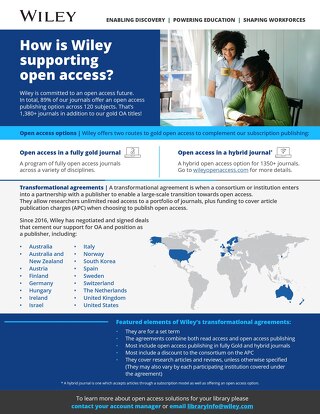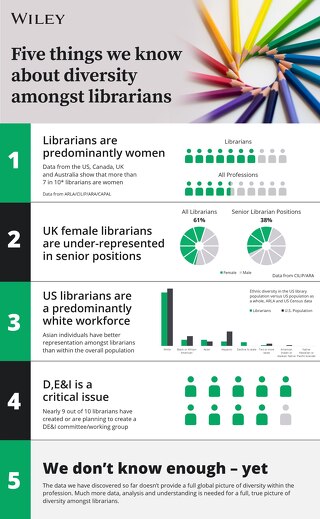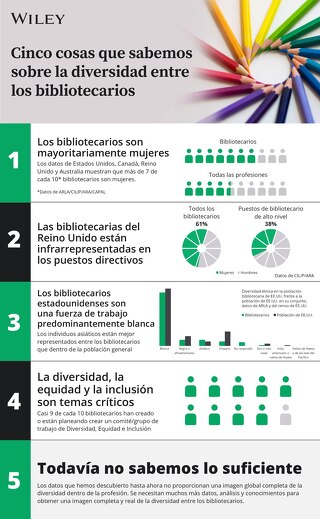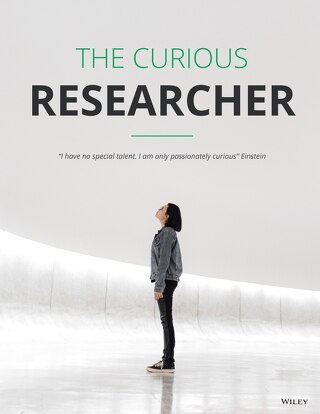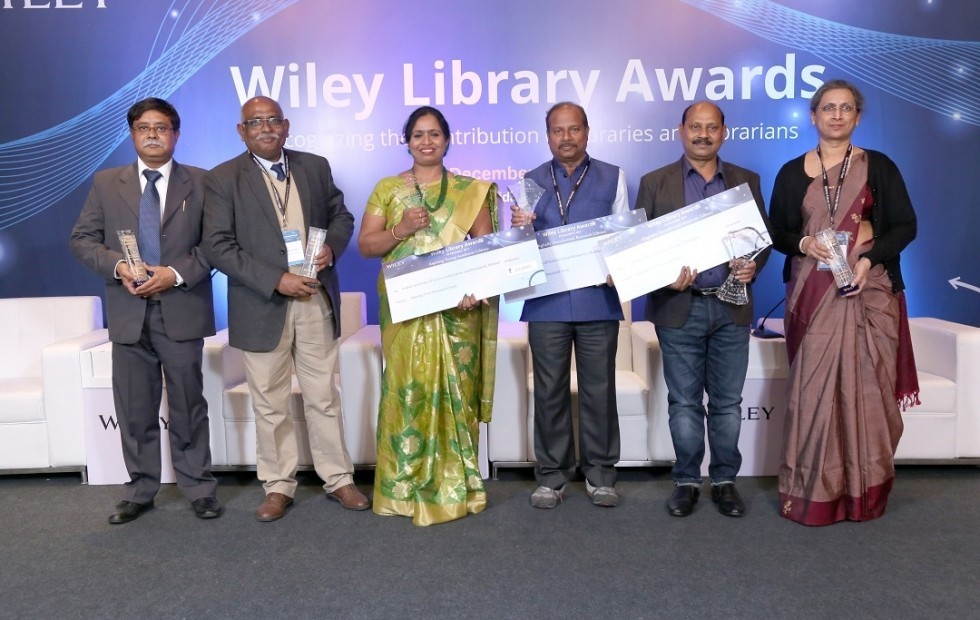10-ways-academic-libraries-are-leading-change
April 09, 2018
Without libraries what have we? We have no past and no future.
–Ray Bradbury
Each year, National Library Week celebrates libraries and librarians across the nation, promoting library use and awareness. First sponsored in 1958, this year’s celebration marks the 60th anniversary of the event.
Now in 2018, the acknowledgement and support of libraries is more important than ever. With a rapidly-evolving user base and an increasingly intricate information landscape, librarians are being called upon to help researchers navigate complex terrain and align their services more closely to the holistic academic journey.
And librarians are out there answering the call—and then some. Check out some examples of the ways libraries are making a difference to researchers and thinking outside of the box as they work to lead change.
1. Librarians as leaders of student affordability initiatives
Under increased pressure to demonstrate their impact on student success, many academic libraries are offering programs to educate faculty and students on eTextbooks and open educational resources. A multitude of institutions are tackling the issue of student affordability head on. Just to name a few: NYU has been piloting a eTextbook program, the University of Washington has a grant available for faculty to provide open textbooks, Temple University hosted a workshop for faculty to provide instruction to the world of open educational resources, and Rutgers University has implemented the Open and Affordable Textbooks (OAT) Program to help relieve the burden of costly course materials for students.
In the nonstop tsunami of global information, librarians provide us with floaties and teach us to swim. –Linton Weeks
2. Libraries expand outreach programs to reach larger audiences on important topics
In an effort to amplify outreach efforts, academic libraries are now often seen hosting workshops and events to proactively answer researchers’ questions and connect them with the resources they need to succeed in their work. Recently Brown University started a Library FYI workshop, covering basic resources and “keys to efficiently wrangling information” as well as a drop-in workshop on “Citing and Publishing Your Data.” Southern Methodist University has adopted this approach as well, offering a “Request a Workshop” option where students can choose the topic and preferred timing in order to accommodate their busy schedules.
3. Combining two of the best things: books and food!
In April, many institutions are participating in edible book festivals, where contestants turn their favorite books into edible art and compete for prizes. Schools like Georgetown University, Pennsylvania State University, and Johns Hopkins University are joining the edible book festival trend this year as a fun way to demonstrate the love of reading and express creativity.
4. Expanding the possibilities of research direction
Although research often starts in the library, it doesn’t always have to end there! The University of Washington is hosting a unique program titled “Going Public: Connecting Research & Community,” where attendees will explore ways in which students can engage with the community in the research process “through public scholarship, citizen science, community-engaged research, and participatory research.” This program will include panel presentations from community participants and researchers, graduate student poster displays of success stories, and several workshops. This is a great way for researchers to connect with like-minded people, involve members of the public in research, and explore different ways of conducting research.
Google can bring you back 100,000 answers, a librarian can bring you back the right one.
–Neil Gaiman
5. Libraries are improving user experience
A major challenge that librarians continue to face is promoting awareness of the library’s resources and encouraging its users to leverage the library website as a starting point for search. But without an up-to-date interface and user-friendly navigation, many researchers won’t take full advantage of all of the opportunities their institutions’ libraries have to offer. To address this challenge, many schools like the University of Notre Dame, the University of Pennsylvania, and Dartmouth University are building new websites, taking into consideration a great deal of feedback and troubleshooting to deliver the best user experience and gateway to their libraries.
Librarians are tour-guides for all of knowledge. –Patrick Ness
6. Libraries are transforming their physical spaces
To stay relevant, librarians are taking on more than just their websites—their physical space is getting a refresh as well. Librarians know that the library is no longer simply used for its stacks, but that it requires modern and open study areas, computer zones, and meeting spaces to accommodate a more tech-oriented, collaborative culture. For example, Princeton University is planning to renovate its Firestone Library in order to create a building “that is well-suited to support library services and contemporary approaches to scholarship.” Similarly, the University of Michigan is building a brand new Special Collections Research Center “with newly-renovated spaces for reading, instruction, and consultation, designed to maximize the opportunities for engaging with the library’s extensive collection.”
7. Providing opportunities to promote projects and get published
Among the many other hats that they wear, librarians are some of researchers’ most valuable advocates. In order to help users navigate the publishing process and see success in the competitive world of scholarly communications, librarians are providing opportunities for researchers to learn from each other. In one such example at Concordia University, the library is hosting its Research Forum, an event that provides librarians, archivists, graduate students, teaching faculty, and information professionals with an opportunity to “describe and promote their completed or in-progress research practical case studies, or projects.” Using a different approach, Georgetown University will have a Hoyas Publish Fair for students who want to get published, are interested in working on student-run publications, or want to read other students’ published work.
8. Librarians give students a platform to be heard
Many academic libraries recognize the need to communicate with student researchers directly to learn about their library needs, rather than make educated guesses on their behalf. The University of Michigan, for instance, has recently started a Student Engagement Ambassador program, and are hiring for Fall 2018. This program will use students to reach students. The engagement ambassadors “will plan events at the library for fellow students and participate in the library’s social media channels for marketing and research”. Similarly, the University of Alberta has developed the Help Us Break Barriers program and is requesting students be part of a focus group to help test the accessibility of library spaces, the library website, and its programs and services.
Libraries always remind me that there are good things in this world. –Lauren Ward
9. Incentivizing research to enrich student experience
Award programs are one way in which libraries provide benefits to students as an acknowledgement of their hard work. Through its Archival Scholars Research Awards, the University of Pittsburgh has not only helped accomplish this goal, but also facilitates a deeper connection between undergraduate students and their research materials, career plans, and fellow researchers. Offering award recipients a monetary stipend to develop independent research projects that draw on the library system’s archives, this program includes workshops, archival training, and presentations.
10. Libraries connect the community and raise support
Libraries across the world continue to lead events and activities that connect researchers and students and enhance the community. At the University of Wisconsin-Madison, the library is holding their semiannual book sale during National Library Week. This sale is organized “to support the university’s annual lecture series, special purchases for the library collections, preservation of library materials, and grants for the visiting scholar program.” With the help of volunteers, the community event is open to the public and includes books that have been donated by University of Wisconsin faculty, staff, students, and Madison-area residents. Not only do events like this raise money in support of libraries’ collections and activities, but they also help preserve books, spread the joy of reading, and connect the community.
As we continue to celebrate National Library Week, please join us in expressing our heartfelt thanks to all the librarians out there who continue to devote themselves tirelessly to the community and make critical knowledge available to us all.

